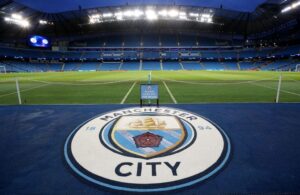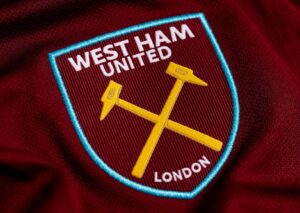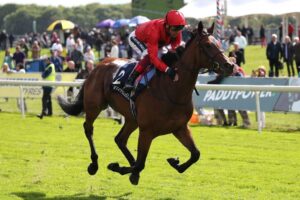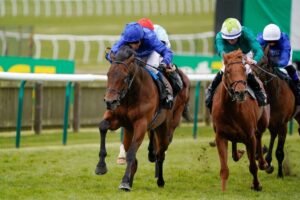
Out of all the British nations, Northern Ireland is the most overlooked in the world of football. Despite 3 World Cup appearances, NI is often shafted from the limelight compared to their neighbours. That has not stopped the country from producing dozens of top players – some who are revered to this present day. Some of these characters have guided Northern Ireland to the last eight of the World Cup twice in the past – feats that Ireland, Scotland and Wales have all failed to realise. So just who would make the greatest Northern Ireland XI of all time?
GK: Pat Jennings
There are fewer goalkeepers anywhere in football that enjoyed a long and successful career than what Pat Jennings did. For the best part of three decades, Jennings shone at the highest levels of the game thanks to excellent reactions, agility and command of his area. It’s why Jennings won multiple titles with both Tottenham and Arsenal throughout his career. He was a pioneer for NI internationally too winning 119 caps between 1964-1986 and his appearance at the 1986 World Cup made him the oldest player ever at the tournament until the record was broken in 2018. Having been named in the English Football Hall of Fame in 2003, Jennings’ legacy in the game will shine on still for decades to come.
RB: Jimmy Nicholl
Despite being born in Canada; Jimmy Nicholl was all about representing Northern Ireland. It was why the right-back became a key part of the squad that appeared in both the 1982 and 1986 World Cup tournaments. Nicholl’s physical presence and excellent technical ability made him a regular for Manchester United throughout both the 1970s and 80s being part of the side that won the 1977 FA Cup Final. Nicholl also enjoyed successful spells with Rangers and in Canada too underlining just how well his skills were appreciated across the globe.
LB: Mal Donaghy
Mal Donaghy may not be a headline name but he was a solid defender whenever he played on the pitch. Donaghy spent the majority of his career with Luton Town – helping them win the 1988 League Cup Final. His reputation for consistently strong performances earned him a short stint at Old Trafford with Manchester United where he was part of the team that won the 1991 UEFA Cup Winners Cup and 1991 European Super Cup. These efforts came alongside over a decade-long presence with the Northern Ireland senior team where he participated in two world cups in that time.
CB: Jonny Evans
Fewer footballers have showcased tenacity quite like Jonny Evans. Evans came through the ranks at Manchester United in the late 2000s but found first team opportunities hard to come by. His physicality in the air and strong presence helped him break into the squad at Old Trafford long enough to win 3xPremier League titles before spending time with both West Brom and Leicester City. Evans’ presence in the Northern Ireland national side also helped his country become known for strong defences and helped his nation reach Euro 2016 – the first major tournament for Northern Ireland since 1986. A modern-day stalwart that helped his country rejuvenate their reputation to the rest of the world.
CB: Aaron Hughes
Whilst Aaron Hughes may never be the main man, his presence in the backline was never hard to miss. Hughes’ versatility to play both centrally or as a full-back made him indispensable to whatever side he played for. With long stints with Newcastle United, Aston Villa and Fulham in the Premier League, Hughes was never one to shy away from top-level opponents. His disciplined nature was particularly remarkable going over 450 Premier League games without a red card. This form translated over to Northern Ireland too as he made 112 caps for his country making him third in the all-time list for NI.
CM: Danny Blanchflower
One of the stars of yesteryear, Danny Blanchflower was a player who could do it all. One of the iconic forefathers of the anchor midfield role, Blanchflower always produced remarkable passing that dictated how a game was played. He is revered as a legend with Tottenham notching up over 350 appearances for the club across all competitions. The highlights of that career was being the captain that completed the domestic double in the 1960/61 season. He also captained Northern Ireland at their first World Cup in 1958 where they reached the quarter finals and making the All-Star Team for the Tournament. Sadly, Blanchflower died aged 67 in 1993 from pneumonia however his legacy remains intact today having been one of the inaugural inductees of the English Football Hall of Fame when it opened in 2003.
CM: Steven Davis
For the best part of the last two decades, Steven Davis has led teams to go above and beyond what is expected of them whenever they take to the pitch. Alongside being a natural leader, Davis’ excellent passing and crossing skills make him a key part of any team he is in. This has been seen both in English and Scottish football for the likes of Southampton, Aston Villa and Rangers. Davis’ is particularly idolised at Ibrox Park having captained to Rangers to their first Scottish Premiership title in 2021 since the club was reformed in 2012. It’s been a similar story for Davis with Northern Ireland where he has captained the squad into a new era of fame leading the team to reach Euro 2016 and end the nation’s major tournament appearance drought. Furthermore, with 134 caps for Northern Ireland, Davis’ holds the record for most appearances for NI in international football.
CM: Martin O’Neill
Many people know Martin O’Neill as an elite manager but they forget he was an excellent player in his own right too. Playing in the heart of midfield, O’Neill was a major name in Brian Clough’s legendary Nottingham Forest side of the late 1970s. It was here where O’Neill lifted the 1978 English First Division trophy as well as consecutive European Cup wins in 1979 and 1980. He also was a part of the Northern Ireland team that reached the second round of the 1982 World Cup. It’s these achievements that helped O’Neill become the expert manager we all know him for today and win countless trophies over the years in British football.
FW: Sammy McIlroy
Sammy McIlroy was a top player throughout the 1970s and 1980s and really found his niche as an attacking midfielder pressing defences. He did this best for Manchester United where he played for over a decade from 1971-1982 making over 340 appearances for the club. His goals and drive was a key part of United’s 1977 FA Cup and the club remoulding themselves into a top side once more. He was a massive influence for Northern Ireland too as he often dovetailed as a main striker for his side in both the 1982 and 1986 World Cup tournaments. He captained his country at the 1986 tournament and despite being eliminated in the first round, it was a perfect send-off for a long and storied career.
FW: David Healy
David Healy was a completely different player in club and international football. For his club sides, Healy never found much consistency in top leagues morphing into a strong striker for those in the EFL Championship. However, for Northern Ireland, Healy transformed into something else. With the emerald green on, Healy’s poise and precision in front of the net was mesmerizing. He often ended up scoring more goals than caps in a year with a best of 9 goals in 8 games in 2007 in a run that saw him notch 13 goals in UEFA 2008 qualification – a record feat. With 36 goals for Northern Ireland, Healy is by far the most successful goalscorer for his country underlining how good he could be on the big stage.
FW: George Best
If you wanted to see a footballer who laid the blueprint for small forwards in the game, look no further than George Best. Best’s drive and skill on the ball was mesmerizing and easily bamboozled the best defenders of his era. It was why he could score for fun and his 28 goals in the 1967/68 season underlined just how innovative he was at the time. It was this form that earned him the 1968 Ballon D’Or Prize and another nomination in 1971. He was also named 8th in the best players of all time in a poll by World Soccer and listed in the FIFA 100 selection in 2002. Even though Best’s problems off the field brought his life to a sudden stop in 2005 aged 59, he is still remembered as one of the best players of all time for his actions on it.
The post The greatest Northern Ireland XI of all time appeared first on Colossus Blog.
- "
- 100
- 1980s
- 2016
- 2021
- 67
- 9
- About
- across
- aged
- All
- alongside
- Another
- AREA
- Arsenal
- before
- BEST
- beyond
- British
- Canada
- Career
- characters
- City
- club
- Competitions
- could
- country
- day
- decades
- despite
- DID
- died
- different
- dozens
- drought
- English
- enjoyed
- Euro
- European
- Fifa
- First
- Football
- form
- front
- fun
- further
- game
- Games
- George
- Goals
- good
- Green
- having
- headline
- here
- How
- HTTPS
- influence
- innovative
- International
- ireland
- IT
- Key
- leading
- League
- leagues
- Led
- Legendary
- levels
- limelight
- List
- Long
- major
- Majority
- Making
- man
- manager
- manchester
- May
- more
- National
- net
- Niche
- opportunities
- own
- People
- perfect
- physical
- play
- player
- players
- Playing
- poll
- precision
- Premier League
- present
- Produced
- reach
- reactions
- record
- REST
- right
- Run
- Scotland
- selection
- shine
- Short
- similar
- skills
- small
- So
- Soccer
- Spending
- Stage
- Story
- successful
- Team
- Technical
- The
- the world
- Through
- Throughout
- time
- Title
- Today
- top
- Tottenham
- tournament
- Tournaments
- United
- West
- What
- What is
- WHO
- win
- winning
- world
- World Cup
- year
- years











